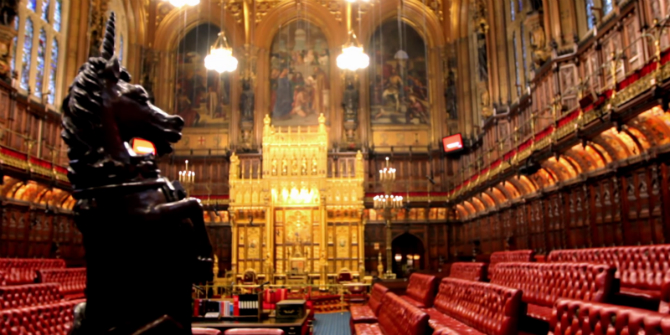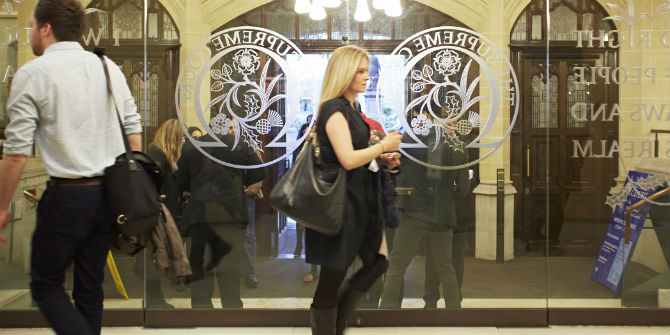 The Prime Minister suffered a big defeat in the House of Lords yesterday as peers endorsed requiring ministers to consider customs union membership post-Brexit. While this shows that the powers of the House of Lords in the Brexit process are substantial, they are unlikely to be used to full effect, explains Richard Reid (University of Oxford).
The Prime Minister suffered a big defeat in the House of Lords yesterday as peers endorsed requiring ministers to consider customs union membership post-Brexit. While this shows that the powers of the House of Lords in the Brexit process are substantial, they are unlikely to be used to full effect, explains Richard Reid (University of Oxford).
Yesterday (Wednesday) the House of Lords moved to the Report stage on the European Union (Withdrawal) Bill. Public interest has begun to focus on the potential amendments for which divisions may be called, and the possibility of government defeats. This contribution will not seek to add to the commentary on the likely success of such amendments but rather seeks to outline the power of the Lords in the Brexit process.
As the European Union (Withdrawal) Bill has not been designated by the Speaker of the House of Commons as a ‘Money bill’, the House of Lords retains substantial powers of delay. Through the Parliament Acts 1911 and 1949 the House of Lords has the power to delay the Withdrawal Bill for up to one year, after which time the Bill can be presented for Royal Assent without the approval of the House of Lords. Some difficulties have been raised about the potential use of the Parliament Acts in this case, as the bill would need to be reintroduced in a second session for the provisions to apply. Therefore, to pass the Withdrawal Bill and bypass the House of Lords the government would need to shorten the session, as it has currently been extended to two years ruling out the use of the Parliament Acts in time to meet the government’s withdrawal timetable.
However, it is not these formal powers which are of most interest to those seeking to understand the power of the House of Lords in the Brexit process. The real power of the Lords, as it is unlikely to push this bill to the Parliament Acts, is in its ability to draw attention to the substantial weaknesses in the Withdrawal Bill. Amendments moved by such respected figures as Lord Judge, Lord Pannick, and Lord Kerr of Kinlochard, are building pressure on the government in areas where it is most vulnerable. In addition, amendments with cross-chamber support further press the need for compromise. The marshalled list provides the amendments to be moved at Report.
 Chamber of the House of Lords, Author UK Parliament, Creative Commons Attribution 3.0 Unported.
Chamber of the House of Lords, Author UK Parliament, Creative Commons Attribution 3.0 Unported.
The House of Lords is unlikely to force passage of the Withdrawal Bill through use of the Parliament Acts. Rather the House of Lords has, is, and will bring significant pressure on the government through amendments moved this week. Whilst most peers remain conscious of the limitations of their authority, this will not preclude the House of Lords exercising its powers of scrutiny and revision.
The article gives the views of the author, and not the position of LSE Brexit, nor of the London School of Economics.
Dr Richard Reid is Associate Member, Gwilym Gibbon Centre for Public Policy, Nuffield College, University of Oxford and Europa Visiting Fellow, European Studies Centre, Australian National University.






